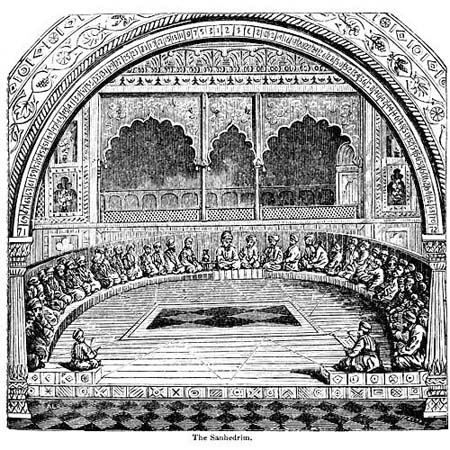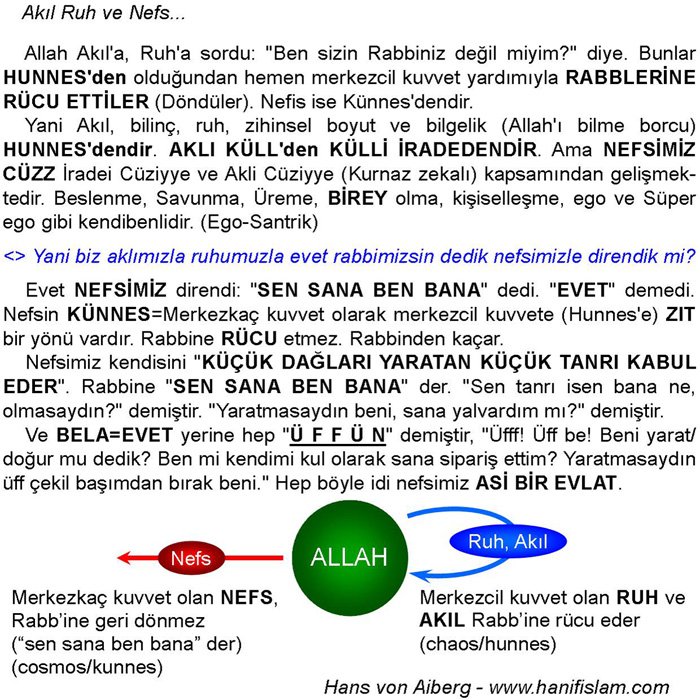<> Sanhedrin Hollandaca “İsa’yı mahkum eden” diyor. Kral mı bu Sanhedron?
San Hedrin (Sanhedrin, Sanhedron, Harod) bu isimlere link verebilir misiniz?
[] http://tr.wikipedia.org/wiki/Sanhedrin
[] http://en.wikipedia.org/wiki/Sanhedrin
[] http://web.archive.org/web/20031023160844/http://highlands-reformed.com/votingrequirements.html
<> Hiristiyan site
Fakat YAHUDİ iftirasından söz etmek istiyorum. Harod’u ayıklayalım önce! Kimdir Harod?
[] http://www.jesus-story.net/pilate_herod_jesus.htm
[] http://www.jewishhistory.org/herod
[] http://tr.wikipedia.org/wiki/Hirodes
<> http://www.sacred-texts.com/jud/t08/t0803.htm
<> http://www.sacred-texts.com/jud/t08/t0804.htm
<> Hollanda sitelerinde çoook buldum San Hedrin ile ilgili. İsa SS’ı mahkum etmiş bu adam, KRAL mı?
Senin soruna cevap arıyoruz. (Senhedrin MİŞNACILIK denen SABETEİSTLİKTİR.)
Ayrıca
1. İsa’yı çarmıha gerdirme emri çıkaran ROMA VALİSİ kimdi?
2. Mişna ne demektir, MİŞNACILIK ne demektir?
3. SAN >>> SANTA
4. HEDRİ(n) >>>> ?
(Zaman daraldıkça hızlı soruyorum.)
<> Het Sanhedrin, een regerende Senaat bestaande uit de leidende Joodse priesters en Farizeeërs, zwoeren samen om Jezus te doden.
Hayır, tam tersine Hızır, İsa’ya yardım etti.
<> HDR => YEŞİL, HıDıR
<> Hubbard is wrong on at least one count here. Jesus Christ was assassinated by the Jewish Sanhedron. The Romans were merely tools, since Jews could not impose the death penalty.
Hahamlar, İsa’nın göğe yükselmesindeki mucizeyi kendi Majisyenlerine mal etmek için olayı saptırdılar.
Oysa bu işi yapan ve İsa’ya kılavuzluk yapan haham değildi. İsa’yı “DEHR” ile götüren SAN(ta) HıDıRon idi. Anlamı “Hazırlayıcı ve Hazır bulunan” demek. Yahudilerin HIZIR’a sahip olma şansları hiç yoktur.
Sırada Mişna var. Mişna Kur’an’da var mı?
<> Yok, arama sonucunda çıkmadı
Pekiyi Mishna, ne demek mishna ve mişnacılık?
<> hadis?
“In the Mishna, the name for the sixty-three tractates in which Rabbi Judah set down the Oral Law, Jewish law is systematically codified, unlike in the Torah. For example, if a person wanted to find every law in the Torah about the Sabbath, he would have to locate scattered references in Exodus, Leviticus, and Numbers. Indeed, in order to know everything the Torah said on a given subject, one either had to read through all of…“
[] one either had to read through all of it or know its contents by heart. Rabbi Judah avoided this problem by arranging the Mishna topically. All laws pertaining to the Sabbath were put into one tractate called Shabbat (Hebrew for “Sabbath”). The laws contained in Shabbat’s twenty-four chapters are far more extensive than those contained in the Torah, for the Mishna summarizes the Oral Law’s extensive Sabbath legislation. The tractate Shabbat is part of a larger “order” called Mo’ed (Hebrew for “holiday”), which is one of six orders that comprise the Mishna. Some of the other tractates in Mo’ed specify the Oral Laws of Passover (Pesachim); Purim (Megillah); Rosh haShana; Yom Kippur (Yoma); and Sukkot.
<> The Hebrew verb ‘shanah’ literally means ‘to repeat [what one was taught] and is used to mean ‘to learn’. The term ‘Mishna’ basically means the entire body of Jewish religious law that was passed down and developed before 200 CE, when it was finally redacted by Rabbi Yehudah haNasi (Judah the Prince). He is usually simply referred to as ‘Rabbi’.
Sabeteyistler=Mişnacılardır ve LANETLENMİŞLERDİR.
Böylece GELECEKTE Mehdi ve asıl LANET olan MESİH’in gelişiyle Yahudilerin nasıl lanetleneceklerini anlamak için, geçmişteki LANET’leri ö ğ r e t m e k zorundaydım. Sabeteyizm ve Mişnacılık gibi…
Sizleri ARAŞTIRMAYA zorlamak için SORU sormak benim şiarımdır. Aksi halde düz kelime olarak verip geçecektim. Sabbath, Sabeteyizm ve mişnacılık. Sanhedrin’in HIZIR’a atılmış iftira olduğunu bilmeyecektiniz.
<> 12/28deki? “qamiySahu” olarak var, qa mîSah u
<> kelime doğru değil mi?
MİŞNA doğrudan mişna candaş. İbranice ŞON’dan geliyor, türetmesi.
<> öyle ise yanlış kelime bulduk
Mişna, Deccal’in EL KİTABI (Yahudi kullanma kılavuzu) olacaktır.
[] http://tr.wikipedia.org/wiki/Mi%C5%9Fna
[] http://tr.wikipedia.org/wiki/Bar_Kohba_%C4%B0syan%C4%B1
[] http://tr.wikipedia.org/wiki/Hadrianus
<> “MS 150. yıllarında Yudaş adında bir haham, kendilerine kadar rivayetle gelen haberlerin, kaybolmasından korkarak onları Mişna’da toplamıştır. “
<> Mişna: Kur’an dışı başka kitap kaynaklara revaç eden, mezhepli mesnetli yalan atan.
Evet, HADİS demek.
Hans von Aiberg, 17/12/2003 (206/14)
Not-1: <> ile başlayan satırlar sayın Aiberge ait değildir, sohbet/chat esnasında onunla konuşan diğer kişilere aittir. [] ile başlayan satırlar ve [ ] arasındaki kesimler yine sayın Aiberg’e ait değildir, sohbete sonradan eklenmiştir.
Not-2: Eski sohbetlerde işlenen bazı gündem konularının yıllar sonra değişmiş olabileceği ihtimalini gözönünde bulundurmak gerekebilir. Sohbeti okurken karşılaşacağınız her türlü sorunu/hatayı vb. info@aiberg.com adresine bildirebilirsiniz.
önceki bölümü oku | 206 anasayfasına dön | sonraki bölümü oku





